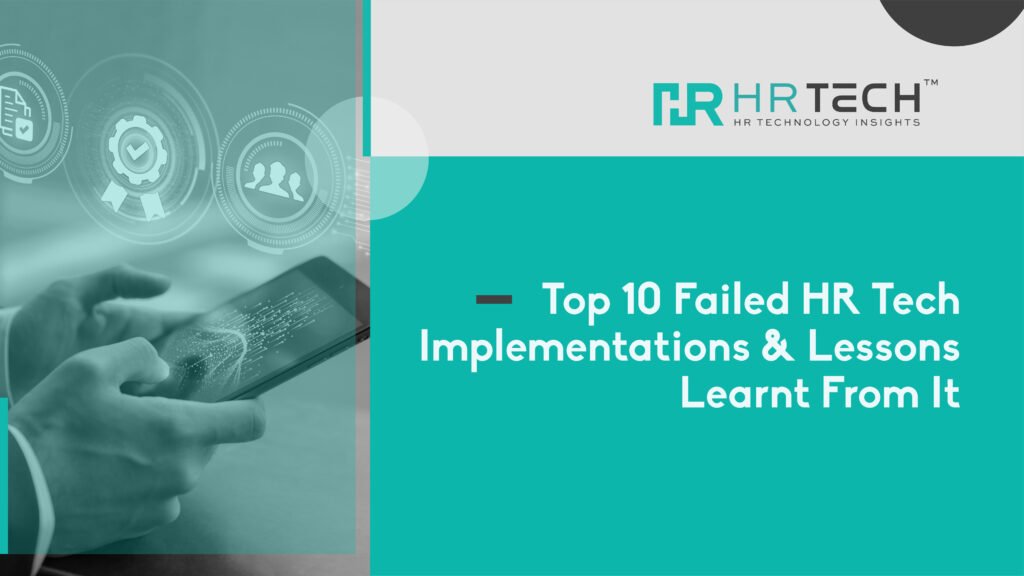The HR industry is constantly moving towards digitization. The core functions of HR in most organizations are continuously expanding from administration to organization. To keep pace with technology, it is essential to understand how to integrate technology in the HR industry. HR technology enables an organization to commit to the vision of growth and success.
Despite the potential benefits of HR tech, many companies struggle to realize tangible value from their investments. This is often due to poor planning and implementation. An unsuccessful HR tech implementation can lead to negative consequences, such as increased costs, operational disruptions, and decreased trust.
Read HR Tech Blog: Top 10 Tools To Be Used By HR To Upskill Their Work
To ensure a successful implementation, HR leaders should prioritize careful planning, proper implementation, and a focus on delivering value. By doing so, they can maximize the benefits of HR tech and reduce their overall workload. The HR industry is trying to implement various strategies to gain growth, but several implementations have failed in the past few years.
Why Did HR Tech Implementation Fail?
Over-reliance on technology, alienating employees, poor ROI measures, seeing change as a one-time solution, and selecting unsuited solutions are some of the reasons behind the failure of HR tech implementations. Most of the failed HR tech implementations directly relate to the technology. Most HR professionals rely on technology, considering it a “quick fix” to the shortcomings of the organization. They tend to end up forgetting about enhancing the employee skills and the company’s culture. HR tech offers a wide potential to streamline various processes and improve efficiency, but many HR tech implementations fell short of expectations.
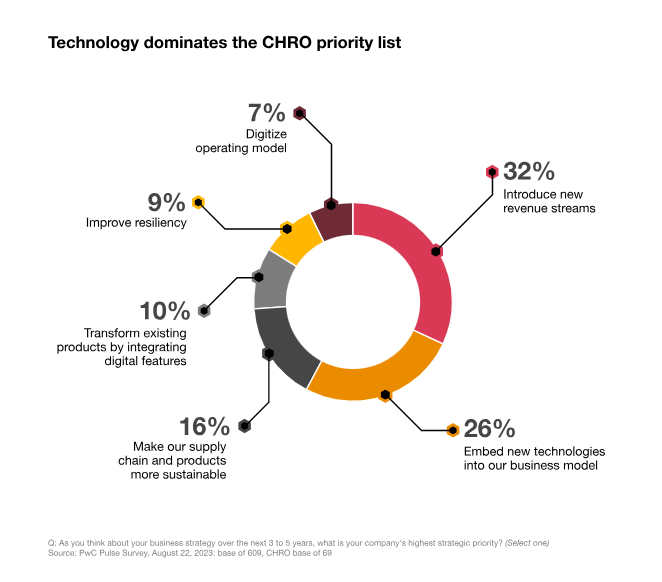
Top 10 Failed HR Tech Implementations And Learnings
#1. Lack Of Clarity
Only about half of organizations have achieved clear business value by adopting HR tech products, implying that more than half are still struggling to gain clarity on their value. Companies are facing issues in extracting tangible value from their investments in HR tech.
Lesson: the organization needs to define precise goals before implementation. Understand the specific problems the technology aims to solve.
#2 Insufficient Planning And Budget
The approval to implement a new HR system might sound difficult, especially when the company leaders declare the project expensive. Reasons for the failed HR tech implementations are no clarity on planning, underestimating the cost of licensing, missing change request costs, and skipping the cost of temporary help.
Lesson: Develop an elaborative plan, including timelines, resources, and budget allocation. Anticipate potential challenges and have contingency plans in place.
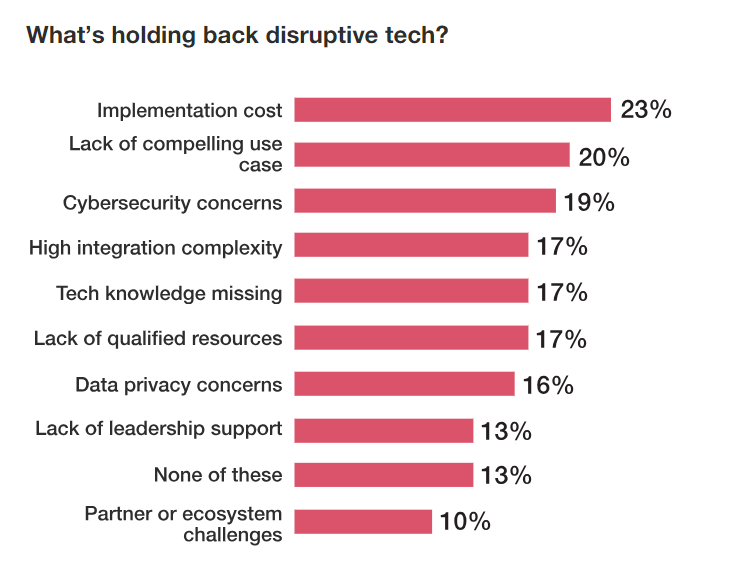
#3. Poor ROI Measure
Using various quantitative aspects and terms to track the return on investment on any acquired technology is not appropriate. As it does not equate to the success metrics. Instead, organizations should focus on measuring success periodically.
Lesson: Make a team to develop higher-value products or services. Boost average deal size without adding new customers.
Read HR Tech Blog: 10 Ways AI will Reduce the HRs Workload
#4. Issues in Data Quality
The data must be error-free, centralized across all data sources, and updated to process effectively. However, when HR tech implemented Data, the quality and accuracy of the data was inaccurate.
Lesson: Ensure the data quality and accuracy before implementing. Additionally, invest in data validation and data cleansing processes.

#5. Choosing Unsuited Solutions
Most HR professionals prefer the most hyped software solutions, declining the actual business needs. Having the right solution is crucial for decision-making roles in project implementation.
Lesson: Choose the solution that aligns with your requirements, not the most-hyped one.
#6. Use Of Outdated Technology
Most HR tech implementations fail because teams or stakeholders are reluctant to adopt new technologies; instead, they continue with their inherited legacy systems. Organizations can’t gain their potential success if they are still adamant about using the same technology for ages.
Lesson: Adapt advanced technologies as per the trend it will only boost your company’s efficiency.
#7. Lack Of Agility In Workforce, Culture, And Business
The major ingredient of agility is fostering the right culture, one that prioritizes a diverse, inclusive workforce. Where they encourage continuous learning and take steps to engage various teams personally and professionally.
Lesson: Prioritize agility in HR tech choices, that allow the organization and teams to adopt advanced technologies and opportunities.
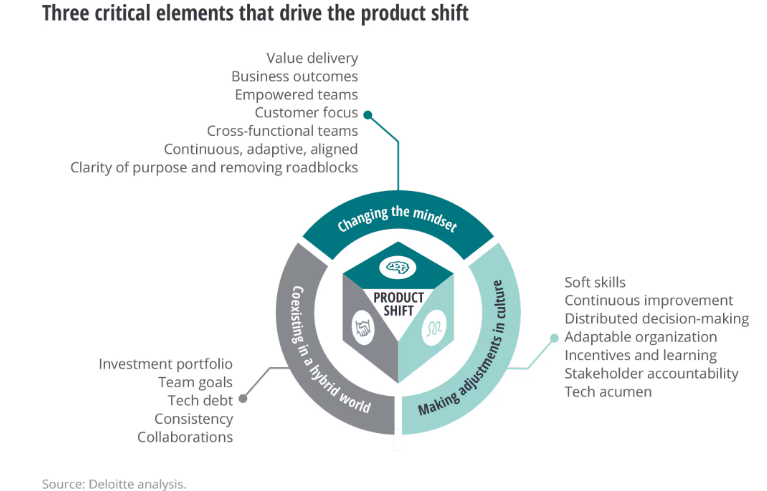
#8. Vendor Lock-in
It has been a crucial challenge in HR tech implementation. It occurs when the organization relies on a specific vendor’s service or software, making it costly or difficult to switch to another provider.
Lesson: Evaluate the costs and flexibility for the long term. Ignore vendor lock-in by selecting solutions with open standards and APIs.
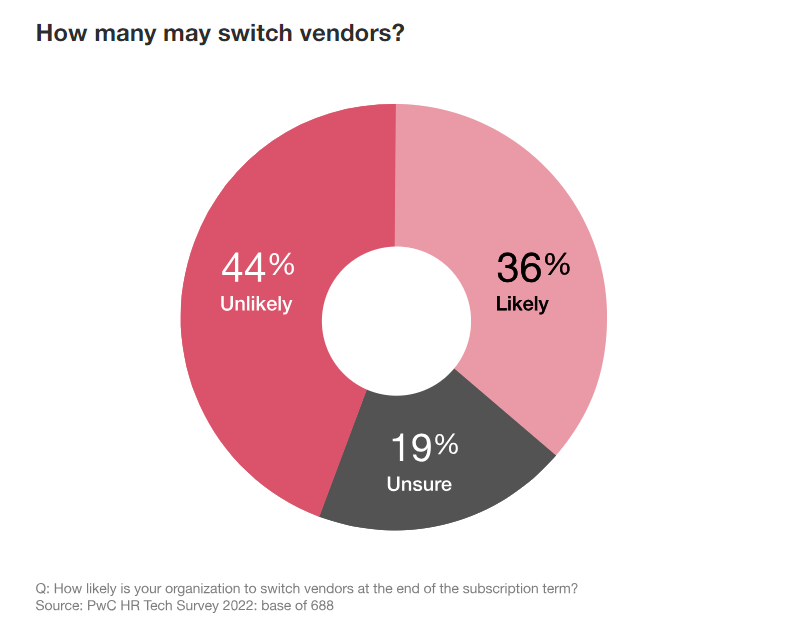
#9. Insufficient Training
Insufficient user training may bring various challenges to the organization. It is a common reason why HR tech implementation fails to offer its promised benefits. This may also decrease productivity, mistakes, and even a return to manual processes.
Lesson: Offer comprehensive training to increase employee adoption of the technology effectively. Offer ongoing resources and support to avoid any glitches.
#10. Unrealistic Expectations
Setting unrealistic expectations is a common cause of failed HR tech implementations. When an organization overestimates the capabilities of a new system’s speed, it may also frustrate, disappoint, and eventually turn into a failed implementation.
Lesson: An organization needs to set prior expectations based on the technologies’ abilities and accept the outcome.
Read HR Tech Blog: Top 10 Benefits of Transitioning to Cloud HR System
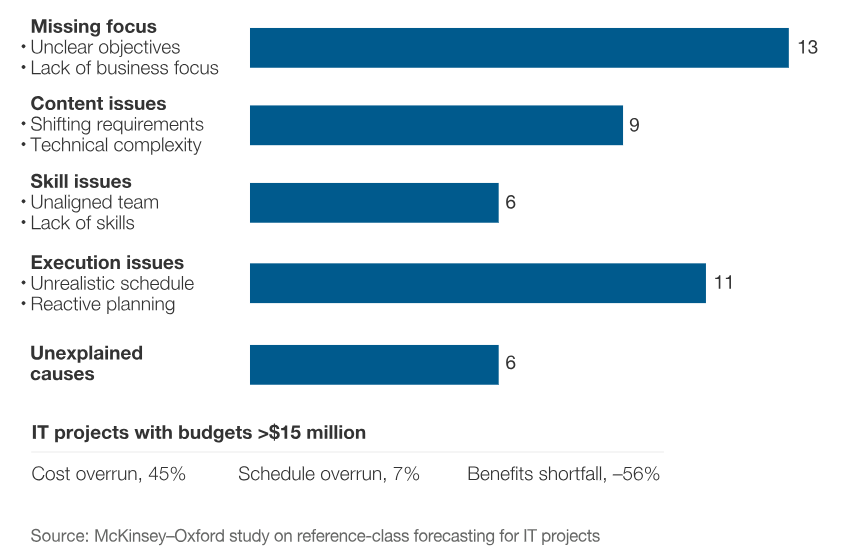
What To Grab From The Failed HR Implementations?
You are right if you think digital transformation is an essential part of business growth! But if you think it is easy, you may be wrong. Understanding the above-mentioned pitfalls and adapting lessons from each implementation will keep your business from downfall. Organizations can significantly boost the chances of HR tech implementation, surge efficiency, enhance employee experience, and reach strategic objectives.
What To Learn From HR Tech Implementations?
There have been various instances of big enterprises stuck with implementing HR technology. These are instances where project leaders attempted these mistakes and set an example. To avoid such situations, ensure that:
- The technology aligns with the objective, fulfills its unique needs, and addresses real pain points.
- Engage employees early in the process to foster buy-in and address potential concerns. Provide adequate training, support, and communication to facilitate adoption.
- Prioritize data integrity and implement robust security measures.
- Continuously monitor performance, gather feedback, and make adjustments as needed.
By observing these lessons, a company can increase the probability of successful HR tech implementations and gather the benefits of improved efficiency, employee satisfaction, and productivity.
To share your insights, please write to us at news@intentamplify.com


